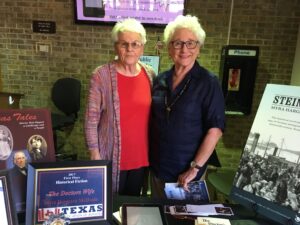Felipe Enrique Neri (1759-1827), a charming gentleman hailed in Texas as the Baron de Bastrop, paved the way for the first Anglo-American colony in Texas. No one knew he left his wife and five children in Holland or that he fled his country with a bounty of 1,000 gold ducats on his head for embezzling taxes from the province of Friesland.

Neri arrived in Spanish Louisiana in 1795, claiming to be the Baron de Bastrop, a Dutch nobleman forced to leave Holland after the French invasion. After ten years of various business dealings, including settling ninety-nine colonists under a Spanish land grant, Neri appeared in San Antonio in 1806 assuming an air of gentility and posing as a loyal Spanish subject, adamantly opposed to the United States’ 1803 Louisiana Purchase. As the Baron de Bastrop, Neri opened a freighting business in San Antonio, and soon gained enough respect to be appointed alcalde (mayor) in the ayuntemiento (local government).
If you read my blog on Moses Austin, you may remember that in an odd twist of fate, Austin chanced to meet his old friend Baron de Bastrop on the plaza in San Antonio after the Spanish Governor flatly refused to even consider Austin’s request to establish a colony in Texas. In fact, the governor ordered Austin to leave San Antonio immediately. Under such contrary circumstances it is obvious Baron de Bastrop held considerable influence with the Spanish officials. Bastrop convinced the Spanish governor to accept Moses Austin’s grant request by arguing that Spain needed settlers occupying the country between San Antonio and the Sabine River as a cushion against the Indian threat; that Spaniards and Mexicans were not coming into Texas, rather they were leaving; and that Anglo colonization had already proven successful in Spanish Louisiana. Within three days the Spanish governor granted Austin permission to establish his colony in Texas.
After Moses Austin died and his son Stephen F. Austin (blog of October 5) applied for his father’s grant, Baron de Bastrop again used his considerable influence to secure permission for Stephen to continue with Moses Austin’s grant to settle 300 families in Spanish Texas.
By 1823 Bastrop won appointment as Stephen F. Austin’s commissioner of colonization with authority to issue land titles. From all accounts, the baron faithfully handled his duties even after he was chosen in 1824 as a legislator representing the new state of Coahuila and Texas. He served as an ideal intermediary for Austin to enact laws that were in the best interest of the colonists such as an act establishing a port at Galveston.
Mexican law required the salary of legislators be paid by contributions from their constituents, resulting in such sparse payment that when Bastrop died on February 23, 1827, he lacked enough money for his burial. Despite the state of poverty in which he died, the Baron de Bastrop, still claiming to be of noble birth in his last will and testament, left land to his wife and children.
Although many people in his day viewed his origins as suspect—some believed him to be an American adventurer—he held respect for his diplomatic and legislative work on behalf of Texas. In the past fifty years records from the Netherlands revealed the true story of his mysterious past.

Can you elaborate on the records from the Netherlands? An interesting coda to Moses and Steven F. Austin’s bios. Wish you had been my Texas history professor.
Thanks for the good word. Felipe Enrique Neri, whose birth name was Philip Hendrik Nering Bogel served as collector general of taxes for the province of Friesland, an appointment that suggests he was a staunch supporter of the aristocracy during the late-18th C revolutionary period. He was accused of embezzling the tax funds and left the country before he could be brought to trial.
Seems that Texas has it’s share of scoundrels reinventing themselves. Makes for interesting reading.
WE ALL HAVE A PAST…SOME TO BE KNOW AND SOME TO BE NOT KNOWN. HUGS –AT THE ISLAND. NICE….
So true.
I love to write about them.
Back then he would have been easy to hide your past across the ocean. Great story.
Thank you. It was a different day.